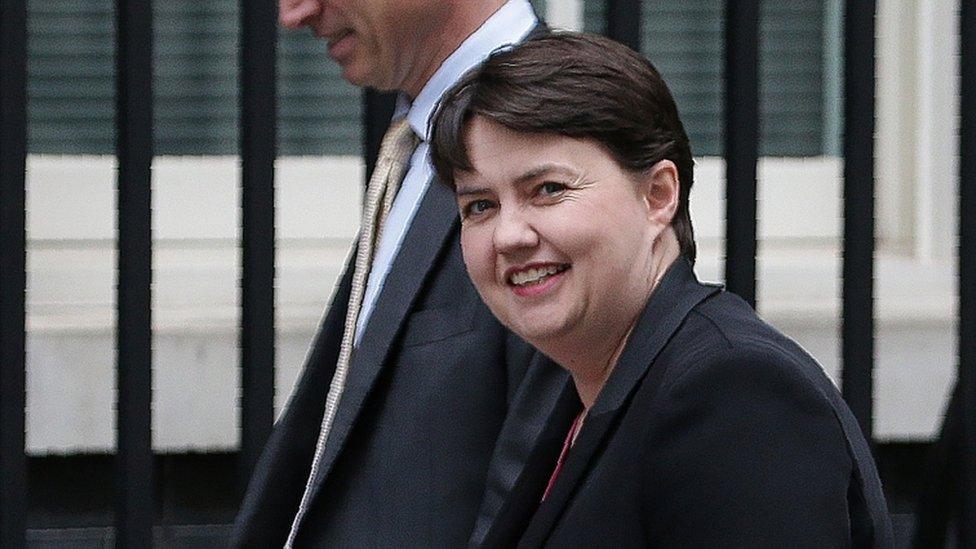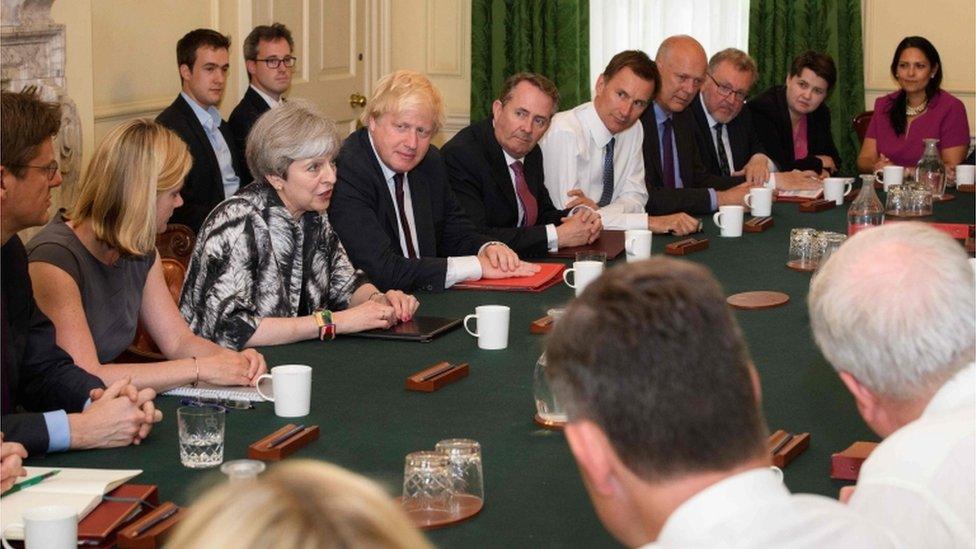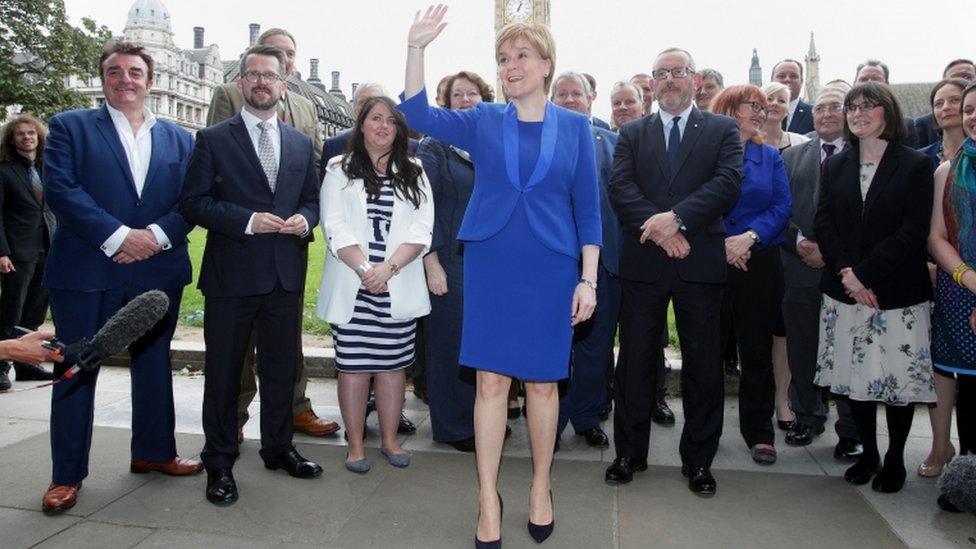Ruth Davidson says UK government's Brexit offer 'could change'
- Published
- comments

Ms Davidson had a private meeting with the prime minister at Downing Street
The UK government could make changes to its strategy for leaving the EU, the Scottish Conservatives leader has said.
Ruth Davidson was speaking after a private meeting with Prime Minister Theresa May in Downing Street.
Ms Davidson, who also attended a meeting of the cabinet, said the Conservatives now had to "reach out to others" on issues such as Brexit.
She added: "I do think that there can be changes in the offer of Brexit as we go forward".
Ms Davidson has new-found clout at Westminster after her party won 13 Scottish seats in the election, and has hinted that she wants Mrs May to change course on her Brexit objectives.
A high-profile Remain campaigner ahead of the EU referendum, she wants the UK to keep the "largest amount of access" to the single market after Brexit.
She has also called for what she describes as an "open Brexit", which prioritises free trade and country's economic interests over curbing immigration.
The prime minister is attempting to secure a deal which would see Democratic Unionist Party MPs support her minority government.
Ms Davidson said she had stressed to the prime minister that the electorate had said "they want the Conservatives in government, but by denying us a majority they don't want us to govern alone".
She added: "And that means that we have to reach out to other people on some of the big issues, for example on Brexit."
Ms Davidson said there was a "clear understanding" that the prime objective for leaving the European Union was to ensure that the economy was protected.

Ms Davidson later attended a meeting of the UK government's cabinet
And she insisted there was a "general consensus" that free trade should be prioritised despite Mrs May indicating that the UK will leave both the single market and the customs union.
When asked whether the UK could stay in the single market, she replied: "I think what is clear is that there is a commitment from around that cabinet table, from within the Conservative Party, to now work with others to make sure that we go after the best economic deal.
"In terms of how we reach out to others and how we take on board their ideas there is lots of work to be done.
"But I do think that there can be changes in the offer of Brexit as we go forward."
Mrs May is battling to keep her party behind her after losing her parliamentary majority just before the start of negotiations with the EU.
Chancellor Philip Hammond has also stressed the need to put the economy first in the Brexit negotiations.

Nicola Sturgeon met the SNP's group of 35 MPs at Westminster
But speaking ahead of her meeting with Ms Davidson, a spokesman for the prime minister said it had been made clear that the UK cannot control its borders while remaining as a single market member.
There has been speculation that Ms Davidson could use her 13 MPs to push for a "softer" Brexit than Mrs May had planned.
She said: "I think my 13 MPs are all individuals and each and every one of them will play their full part in the House of Commons.
"In Scotland we do come from a liberal tradition, we were a separate party at one time, and I would expect them to carry that tradition into the House of Commons and I look forward to their progress - I am proud of them and I want to see what they are going to do next".
Ms Davidson also stressed the need for the UK government, and the wider Conservative party, to pull together and insisted that Mrs May could remain in office for the next five years.
Best result
The Scottish Conservatives won just a single seat in Scotland in the 2015 general election - but the party's share of the vote doubled as it took a further 12 seats last week, all of which were at the expense of the SNP.
Ms Davidson's performance in leading the party to its best result in Scotland since 1983 has seen her mentioned as a possible successor to Mrs May - although she does not currently have a seat in the House of Commons.
The Scottish Conservative leader arrived at Downing Street as SNP leader Nicola Sturgeon met her party's 35 MPs outside the Houses of Parliament.
Ms Sturgeon, who is Scotland's first minister, has called for a "short pause" in the Brexit negotiations in order to secure a cross-party, UK-wide consensus on what they hope to achieve.
She also claimed that Mrs May's plans for a so-called "hard Brexit" were now "dead in the water", and questioned whether the prime minister could form a functioning government.